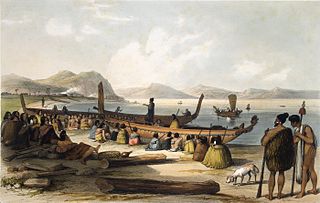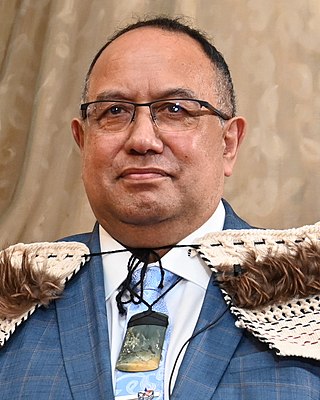
In New Zealand politics, waka-jumping is a colloquial term for when a member of Parliament (MP) either switches political party between elections or when a list MP's party membership ceases.
The gun laws of New Zealand are contained in the Arms Act 1983 statute, which includes multiple amendments including those that were passed subsequent to the 1990 Aramoana massacre and the 2019 Christchurch mosque shootings.

In New Zealand, the Arms Act 1983 is the primary statute controlling the possession and use of firearms and air guns.

Iain Francis Lees-Galloway, initially Iain Galloway, is a New Zealand former politician. He represented the Palmerston North electorate in Parliament for the Labour Party. He was the Minister for Workplace Relations, Immigration, and ACC. He was dismissed by Prime Minister Jacinda Ardern from Cabinet on 22 July 2020 after an affair with a staff member over a period of 12 months. He did not stand for reelection in the 2020 election.

Kanwaljit Singh Bakshi is an Indian-born New Zealand politician and a member of the National Party. He was a Member of Parliament as a list MP from the 2008 election to the 2020 election.
Ian Robert Flockhart McKelvie is a New Zealand politician and a member of the New Zealand House of Representatives. He is a member of the National Party.

Scott Anthony Simpson is a New Zealand politician and a member of the New Zealand House of Representatives. He is a member of the National Party.

David Breen Seymour is a New Zealand politician serving as the Member of Parliament (MP) for Epsom and leader of ACT New Zealand since 2014.

Adrian Paki Rurawhe is a New Zealand Labour Party politician of Ngāti Apa descent. He is the speaker of the New Zealand House of Representatives, the second Māori to hold the position, and Member of Parliament for Te Tai Hauāuru.

Gregory Eamon O'Connor is a New Zealand Labour Party politician and former police officer. He is the Deputy Speaker of the New Zealand House of Representatives, and has served as the Member of Parliament for Ōhāriu since the 2017 general election.

Christopher Aidan Penk is a New Zealand politician who has been a Member of Parliament in the House of Representatives for the National Party since 2017.

The 52nd New Zealand Parliament was a meeting of the legislature in New Zealand, which opened on 7 November 2017 following the 2017 general election and dissolved on 6 September 2020. The New Zealand Parliament comprises the Sovereign and the House of Representatives, which consists of 120 members.

Anahila Lose Kanongata'a is a New Zealand politician and Member of Parliament in the House of Representatives for the Labour Party.

The Sixth Labour Government has governed New Zealand since 26 October 2017. It is headed by Chris Hipkins, the Labour Party leader and prime minister.

The Sentencing and Parole Reform Act 2010, now repealed, was an Act of Parliament in New Zealand that denied parole to repeat violent offenders, and imposed maximum terms of imprisonment on repeat offenders who commit three serious violent offences - unless it would be manifestly unjust. The law was known informally in New Zealand public, media and government circles as the "three-strikes law".

The Arms Amendment Act 2019 is a New Zealand bill that amends the Arms Act 1983 to ban semi-automatic firearms, large capacity magazines, and parts that can be used to assemble prohibited firearms. It was introduced by Labour Cabinet Minister and Member of Parliament Stuart Nash in response to the Christchurch mosque shootings. The Bill passed its third and final reading on 10 April 2019, receiving royal assent the following day. The Arms Amendment Bill was supported by all parties represented in Parliament except the opposition ACT Party.

The Abortion Legislation Act 2020 is an Act of Parliament in New Zealand that decriminalises abortion. Under the act, abortion is available without restrictions to any woman who is not more than 20 weeks pregnant. Women seeking an abortion after 20 weeks have to be assessed by a qualified health professional.

The Electoral (Integrity) Amendment Act 2018 is an Act of Parliament by the New Zealand Parliament that amends the Electoral Act 1993. The act forces the expulsion of members of the New Zealand Parliament who have left or been expelled from their party. If the member of Parliament was elected as an electorate MP, expulsion triggers a by-election. The bill was passed on 27 September 2018 as part of the coalition agreement between the Labour and New Zealand First parties and the Green Party's confidence-and-supply agreement with Labour. The Bill has been described by the media and public as the "Waka jumping bill."

The Russia Sanctions Act 2022 is an Act of Parliament passed by the New Zealand Parliament that establishes the framework for autonomous sanctions against Russia in response to its 2022 invasion of Ukraine. This legislation would allow sanctions to be placed on those responsible for or associated with the Russian invasion of Ukraine including people, services, companies and assets. The Sanctions Act also allows for sanctions to be imposed on other states complicit with Russian aggression including Belarus. On 9 March 2022, the Russian Sanctions Act passed with unanimous support from all parties represented in Parliament.

The Three Strikes Legislation Repeal Act 2022 is an omnibus Act of Parliament passed by the New Zealand Parliament that repeals the elements of the Sentencing and Parole Reform Act 2010, which constitute the so-called three-strikes law. The bill passed its third reading on 9 August 2022 with the support of the governing Labour Party, the allied Green Party, the Māori Party but was opposed by the opposition National and ACT parties.












